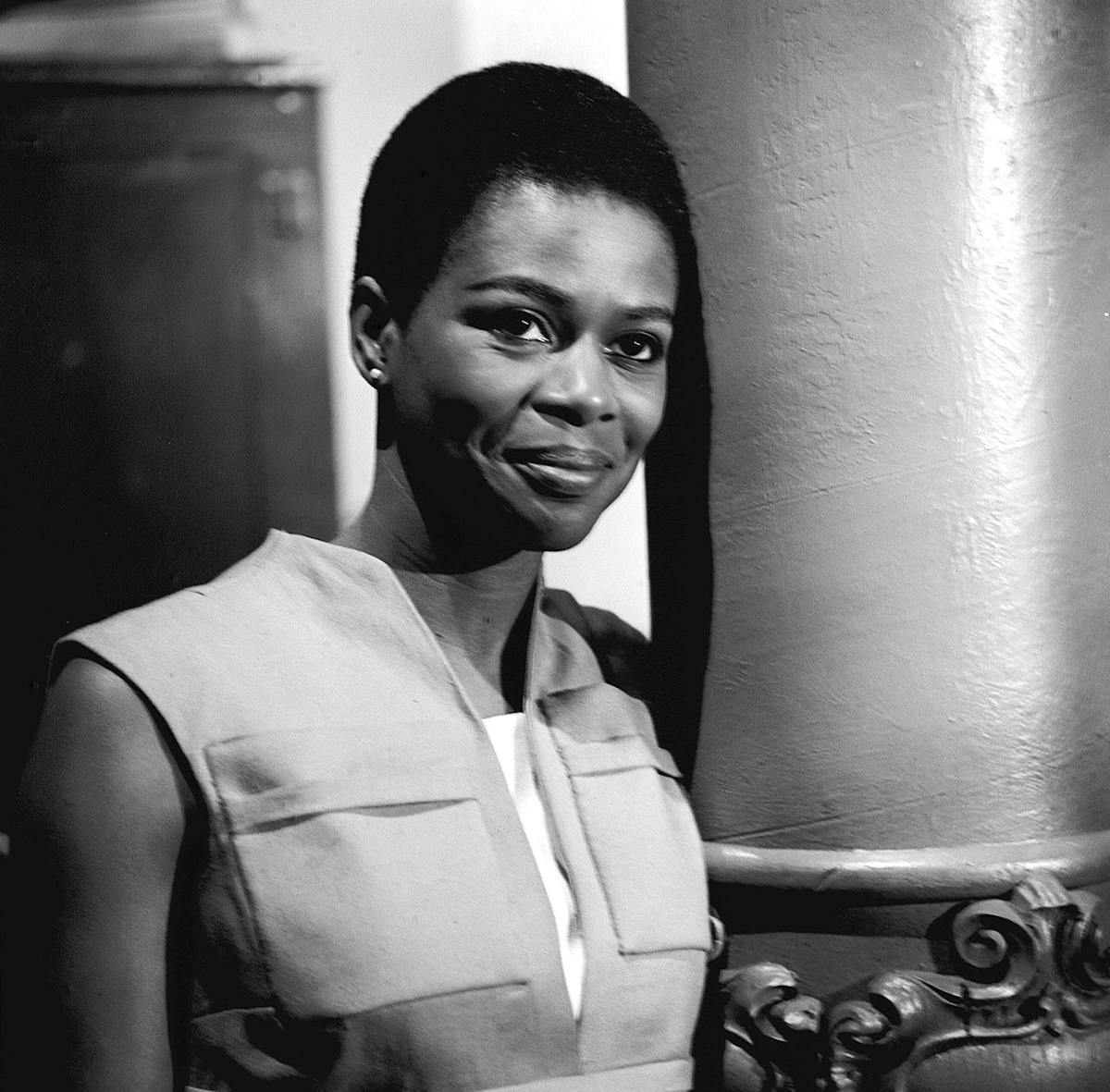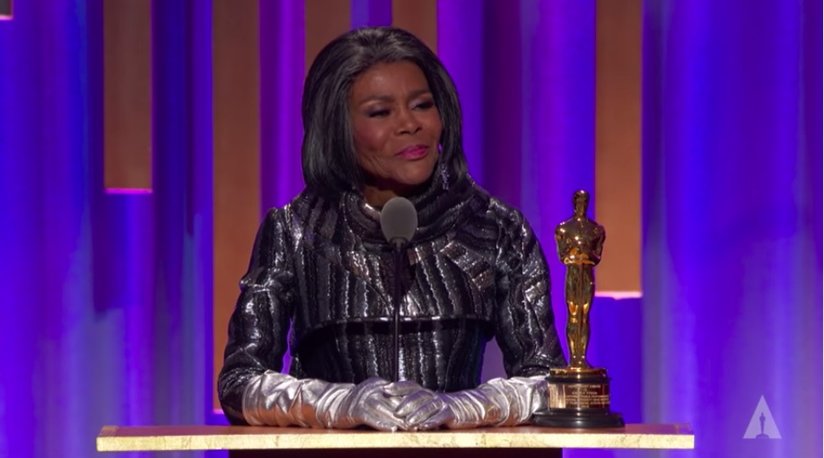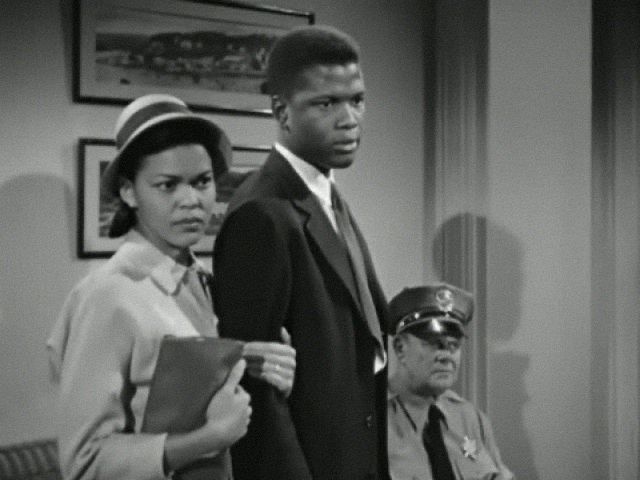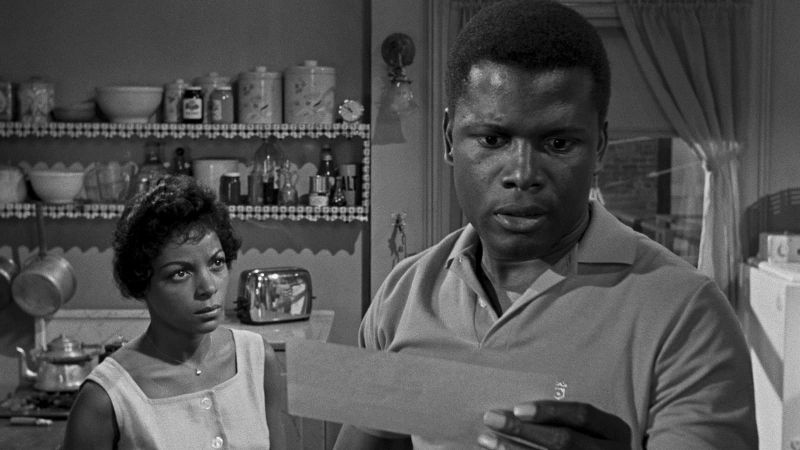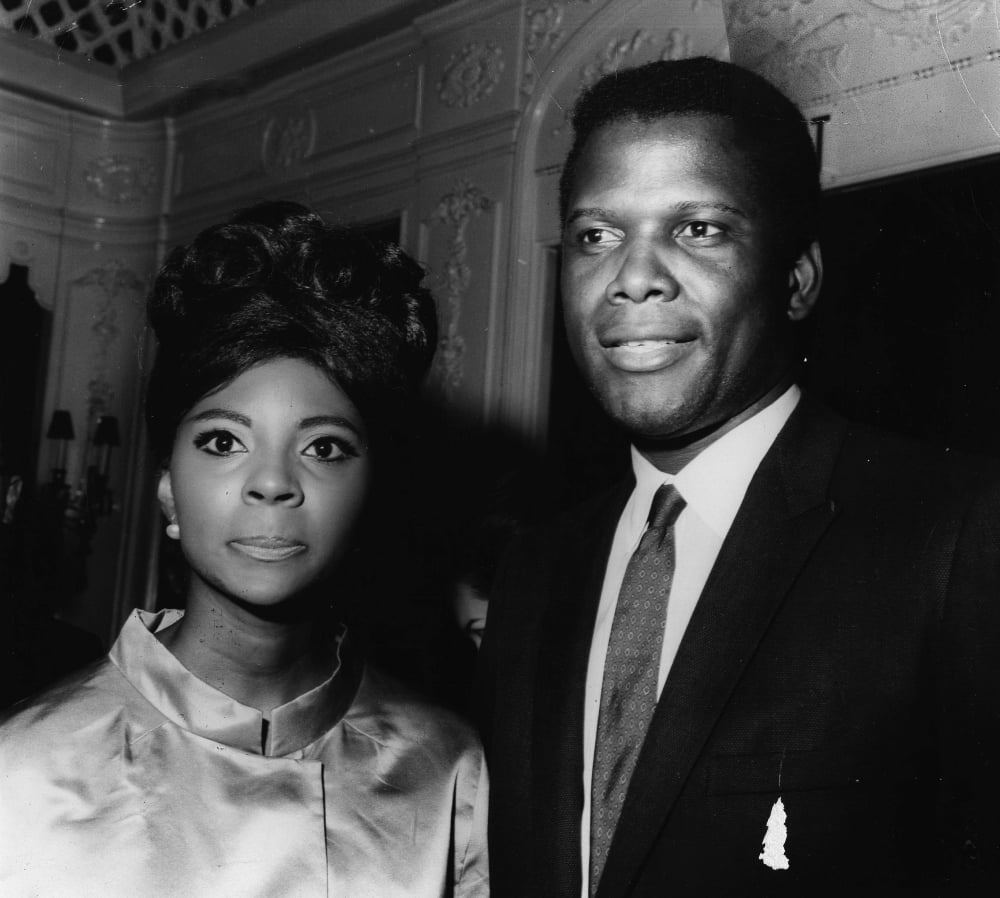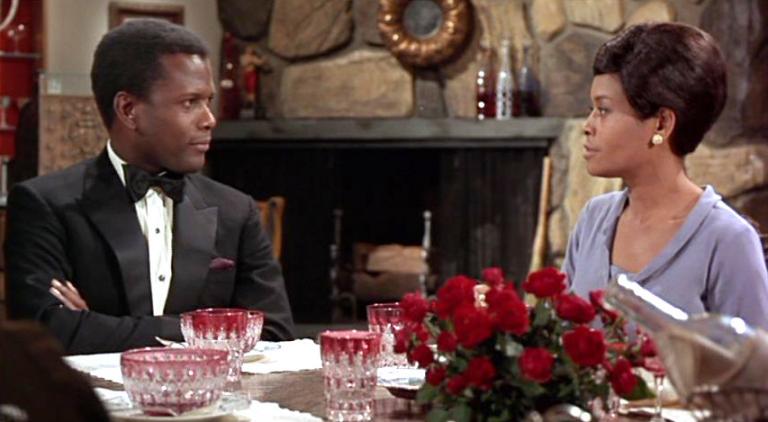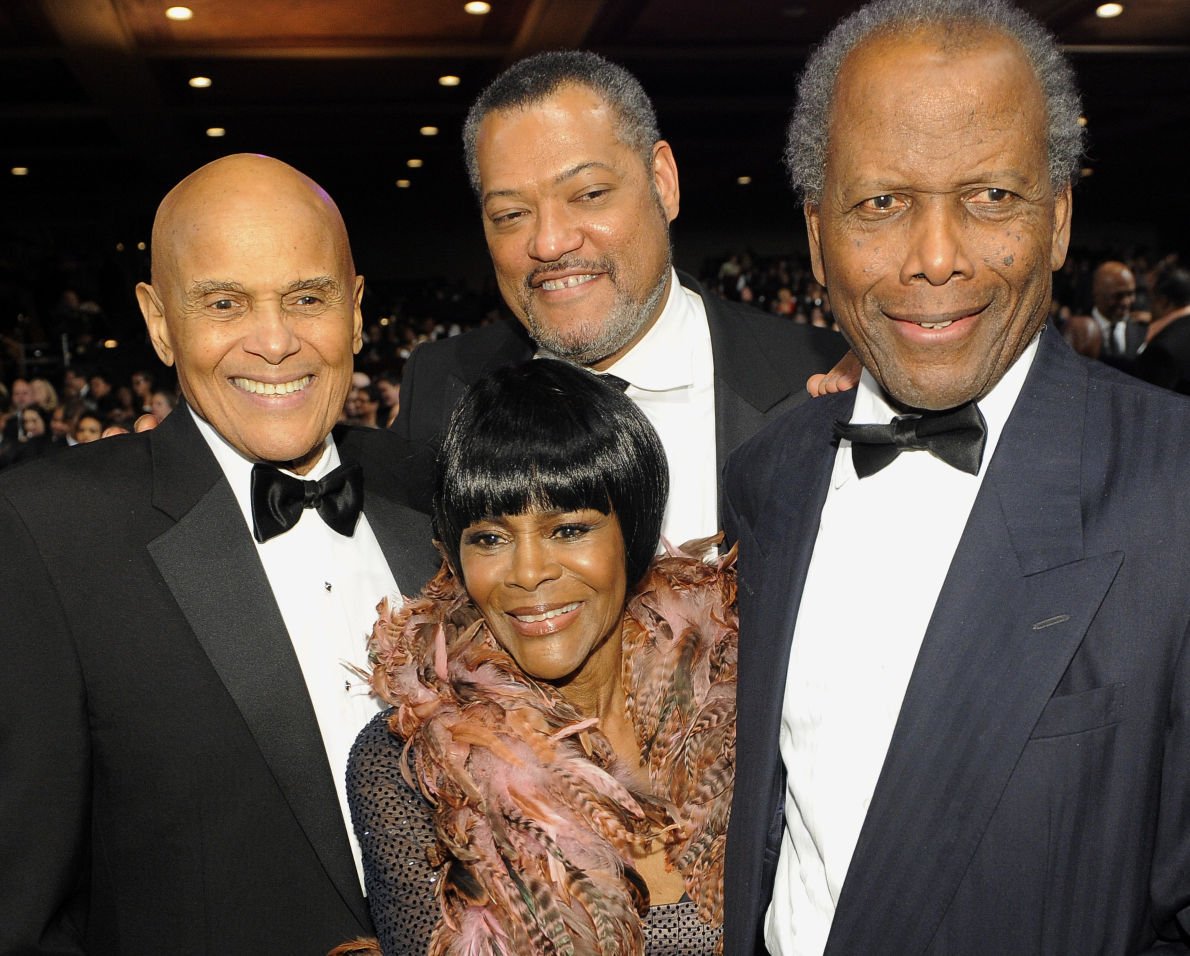The Jackson, Mississippi Water Crisis
The Jackson, Mississippi water crisis is one of the worst environmental disasters in American history. It shows the callousness of racism and economic exploitation. When the GOP leaders of the Mississippi government disrespected the residents of Jackson by acting with kid gloves on this issue for years, then we see that laissez-faire capitalism is evil and wrong. Laissez-faire capitalism is an overt enemy of the human race and of democratic rights. First, it is important to give support and solidarity to the people of Jackson, Mississippi. They are suffering unspeakable horrors that we can't fathom in lacking clean drinking water. This new water crisis started by later in August 2022. This came after the Pearl River flooded as a result of severe storms in the state. The flooding caused the O. B. Curtis Water Treatment Plant, the city's largest water treatment facility, which was already running on backup pumps due to failures the month prior, to stop the treatment of drinking water indefinitely. This resulted in approximately 150,000 residents of the city being left without access to safe drinking water. United States President Joe Biden declared a federal disaster to trigger federal aid. The crisis triggered a political debate regarding racial discrimination, infrastructure neglect, and shifting local demographics. Fundamentally, this is why President Biden passed that infrastructure bill in order to help people. The mayor of Jackson, Mississippi is doing all that he can to help the situation.
First, we have to look at things chronologically. Jackson, Mississippi is the largest city in the state of Mississippi, and Mississippi is probably the poorest state in the United States of America. Its water system has more than 71,000 water connections. For years, Jackson's drinking water treatment systems have had real problems. Back in 2010, a winter storm caused several water main breaks and a widespread outage. City hospitals increased privately owned well capacity as a response to that emergency, and as a result, in the August 2022 crisis, core medical services were able to continue operating with running water. In 2012, Jackson failed a U.S. Environmental Protection Agency (EPA) inspection enforcing Safe Drinking Water Act standards, resulting in a November 2012 settlement requiring that the city improve maintenance. In February 2021, a winter storm shut down the O. B. Curtis Water Treatment Plant, leaving residents without water for a month. The freezing water lines caused water mains to burst knocking out water service to the entire city and surrounding suburbs. City leaders asked the state for $47 million for sewer repairs but received only $3 million. The city and the EPA agreed on a repair plan in July 2021, but the city's water infrastructure continued to deteriorate. Residents complained of low water pressure and sewage floating in the streets. The city issued many boil water orders after the February storm, including one in July 2022 when plant damage forced a move to backup pumps; that order was still in effect when the August 2022 flooding arrived. A private contractor failed to send water bills to thousands of residents, and the governor vetoed an amnesty plan in 2020, but not in 2021. This action allowed the city to recover partial payments from some customers.
By the late summer of 2022, heavy rain fell over parts of Mississippi during the week prior to the new crisis. Walnut Grove had 12 inches (300 millimeters) of precipitation. These storms made flash flooding in the areas, including Jackson. That is why Jackson mayor Chokwe Antar Lumumba declared a local emergency on August 24, 2022. The immediate flash flooding receded that week, but water moving through streams and rivers caused the Pearl River to flood cresting at 35.37 feet (10.78 meters) on August 29 and not falling below the flood stage of 28 feet (8.5 m) until September 1. One home in Jackson was flooded and a few neighborhoods were evacuated as a precaution. Mississippi governor Tate Reeves deployed 600 members of the Mississippi National Guard on August 31 to help distribute bottled water and hand sanitizer. At Reeves' request, President Joe Biden declared Jackson to be a disaster area, allowing the Federal Emergency Management Agency to send resources to the city and to help pay for the response. Local schools and universities moved to virtual learning due to the lack of water. Other Mississippi communities organized drives to donate water and other supplies to the city's residents and offered accommodations for some people displaced by the crisis.
A well dug at the Mississippi Fairgrounds after the 2021 crisis was used to source emergency water locally. Rented pumps were used to increase water pressure, and the city considered using a contractor or retired operators to deal with a chronic staffing shortage. In December 2021, the Environmental Protection Agency announced an allocation of $74.9 million from the Infrastructure Investment and Jobs Act to Mississippi for water infrastructure improvements. Mayor Lumumba estimated the cost of fully repairing the water system at $2 billion. On September 5, Governor Reeves said that conditions at the water treatment plant had improved with the pumped-out water being much cleaner. For long-term solutions, Reeves stated that the state was considering a range of solutions, including privatization of the system and forming a commission to oversee failed water systems. We don't need some privatization but real solutions. Republican Congressman Michael Guest blames political gridlock on city leadership for the crisis, not racism. Reeves has tried to blame city officials for the latest chapter of the yearslong crisis, though the state has historically refused to help pay for repairs that have been impossible for the city to afford as decades of white flight have left it with less tax revenue. Obviously, there is more to the whole story. For decades, Jackson and other places in America have been victims of environmental racism with the state for a long time refusing to adequately support infrastructure in its own capital city of Jackson, Mississippi. The crisis has also spurred discussion about how climate change is expected to strain existing infrastructure in the United States. Writing for the American socialist publication Jacobin, Ryan Zickgraf states that the water crisis in Jackson can be attributed to decades of austerity and capital disinvestment. Arielle King, a lawyer, and environmental justice advocate said that Jackson has been a victim of redlining and racism by many black communities being concentrated in polluting industries like landfills, oil refineries, and wastewater treatment plants.
About 150,000 residents of Jackson, Mississippi lacking clean drinking water is totally wrong. Now, people have to rely on bottled water or use buckets to collect water from wells in the wealthiest country in the world. That is very contradictory. We have blackouts in California, power outages in Metro Detroit, and the water poisoning in Flint, Michigan. We have the money to rebuild Jackson's water infrastructure too. If the Biden administration can send billions of dollars to help Ukraine fight Russian invaders and trillions of dollars have been spent to fund the military in over 20 years, then billions of dollars can be spent to rebuild American infrastructure. Back in 2012, there was a $90 million deal by the outgoing mayor with the global conglomerate Siemens. The plan was to upgrade the city's water and sewage system to have an automated billing system. The new billing and water meter system failed to send bills to residents, resulting in more than $43 million in unpaid water bills and throwing the city’s water fund into crisis. A legal settlement in 2020 saw the city recover the $90 million from the company, but by this point, the antiquated water system had degraded further. In 2016 it was announced that elevated levels of lead had been discovered in the water. The state continues to advise that children under five and pregnant women not drink unfiltered tap water. Lead in water is especially harmful to children as it can cause serious developmental problems.
An Environmental Protection Agency assessment in 2015 found that the state required $4.8 billion over 20 years to guarantee safe drinking water, with much of the infrastructure reaching or well beyond its designed life span. Underfunding and racism contributed to this crisis. Governor Reeves wants the whole public water system to be privatized allowing select corporations to loot resources that have been done years ago. We don't omit the deindustrialization and impoverishment of mostly African American city of Jackson over four decades that contributed to this crisis too along with climate change. Mississippi Governor Tate Reeves also mocked the citizens of Jackson, Mississippi recently. “I’ve got to tell you it is a great day to be in Hattiesburg. It's also, as always, a great day to not be in Jackson,” Reeves said, as he spoke at a groundbreaking event in the southern Mississippi city on Friday. “I feel like I should take off my emergency management director hat and leave it in the car and take off my public works director hat and leave it in the car.” His words show how GOP far-right extremists feel about people who look like us. His words are callous and disrespectful. “In the most disgraceful Governor sweepstakes, Mississippi Governor Tate Reeves is a winner,” Sherrilyn Ifill, a civil rights attorney and former president of the NAACP Legal Defense Fund, tweeted. The Republican government of Mississippi has refused to adequately finance a response to handle this crisis in the billions of dollars. There are many groups in Jackson like Cooperation Jackson who are fighting for Jackson to have clean drinking water to this very day.
The Student Loan Crisis
With the recent news, the student loan crisis has been one of the most important issues of our time. Decades ago, college tuition was either free or it only cost a small amount of money per year. Now, times are different. The majority of recent borrowers and defaulters attend for-profit and non-selective schools. Many people have difficulty in financial stability because of high student loan debt. There are many stories of people and organizations paying off student loan debt of people from across America, but the crisis remains because of many factors. The federal student loan debt is about $1.7 trillion, which is a huge amount of money. Student tuition has radically grown up over the course of four decades. Back when the GI Bill, the National Defense Education Act, and the Higher Education Act of 1965 were passed, many people had greater access to college. Enrollment grew and the costs were very low decades ago. What happened? Deep cuts in state funding for higher education inspired higher tuition rates. These costs of the colleges were pushed onto students. That is why now, tuition is about half of all public college revenue. State and local governments provide the other half. Back then, tuition was only a quarter of revenue, and state and local government took over the rest. Household income is stagnant while average tuition prices are up. That is why more students have to rely on jobs, scholarships, grants, and other programs to help pay for higher tuition rates. Graduate courses have high tuition too. Some use the repayment plan with the lowest monthly payment, but it takes a long time to pay it back. According to the U.S. Department of Education, it takes a person 17 years on average to pay off their educational debt. Without revolutionary solutions, student loan debt could reach $3 trillion.
Cicely Tyson
There is one human being who changed the face of acting at a great level over many decades. She worked so hard, and she earned her awards for her merit. She never compromised her dignity, and she always worked for the cause of our freedom. She is the late Sister Cicely Tyson. For more than seven decades, Cicely Tyson has worked to show an accurate, non-stereotypical image of black women in film and theater. No one can deny what she has done. From Sounder to the film of Moses, Cicely Tyson always was an icon of acting. When Cicely Tyson speaks on an important, all of us stand in attention to listen to her sage wisdom and advice. She was born in New York City of Afro-Caribbean descent. Having faith in God and in our people, she was always on the move to display some of the best work involving the field of acting in human history. She wore cornrows back in the early 1960's which was revolutionary during that time. She constantly refuted the evil of colorism to make sure that all shades of black people ought to be represented in TV, movie, and theater roles. At the end of the day. black people of every hue should be treated with dignity and respect. Cicely Tyson gave great hope and motivation for us all to live out our dreams. Her memoir of Just as I Am was published on January 26, 2021. She promoted the book during the late weeks of her life. She certainly did her best to outline excellence, to fulfill her own dreams, and to give great support to black people (especially black women) who sought her counsel and advice.
Her Early Life
The journey of Cicely Tyson started on December 19, 1924, when she was born in the Bronx, New York City. Later, her family relocated to East Harlem, NYC. Tyson was one of three children born to Fredericka (Huggins) Tyson, a domestic worker. Her father was William Augustine Tyson, who worked as a carpenter and painter. Her parents were immigrants from Nevis in the West Indies. Her father arrived in New York City at the age of 21 and was processed at Ellis Island on August 4, 1919. When I was in high school (during the 1990's), I did a history project on Ellis Island and knew that Afro-Caribbeans were in Ellis Island in order to live in the United States of America. Cicely Tyson was raised in a religious household as she sang in the choir and attended prayer meetings at an Episcopal church in East Harlem. Tyson's mother supported her being an actress after she saw Cicely appear on stage. Cicely Tyson said the following words about her childhood: "...Well, it happened because I learned that I could speak through other people. I was a very shy child. I was an observer. I would sit and observe and listen and watch people's actions in order to understand what they were. I wanted to know what promoted them to say and do the things that they did. I sucked my fingers for 12 years. I never spoke...but I was a great observer."
By the time she was 18, Cicely Tyson married Kenneth Franklin on December 27, 1942. They had a daughter two months later (named Joan Tyson), in February 1943. According to her divorce decree, her husband abandoned her after less than 18 months of marriage. The marriage was formally dissolved by 1956. In 1958, Cicely Tyson was discovered by a photographer for Ebony magazine, and she became a successful fashion model. Her first acting role was part in the 1956 film Carib Gold. She was onstage in Vinnette Carrol's production of Dark of the Moon at the Harlem YMCA in 1958. She had small roles in the 1959 films Odds Against Tomorrow and The Last Angry Man. She was in the 1960 comedy Who Was That Lady? By 1961, she made her television debut in the NBC series Frontiers of Faith.
A Revolutionary Start of Her Career
By the early 1960's, Tyson appeared in the original cast of French playwright Jean Genet's The Blacks. She played the role of Stephanie Virtue Secret-Rose Diop. Other cast members were Maya Angelou, James Earl Jones, Godfrey Cambridge, Louis Gossett Jr., and Charles Gordone. The show was the longest-running off-Broadway non-musical of the decade, running for 1,408 performances. Tyson worked in many theater productions too. She earned the Vernon Rice Award in 1962 for her Off-Broadway performance in Moon on a Rainbow Shawl. In 1963, she was a student at New York's New School for Social Research. In that year, she was on the network television game show To Tell the Truth as an "imposter" for Australian singer Shirly Abicair, receiving 2 of the four possible votes. Cicely Tyson once worked for a social services agency. Producer David Susskind discovered her and was cast for the role in the CBS TV series East Side/West Side (1963-1964), playing the secretary of a social worker played by George C. Scott. She was at the time the only African American regular member of a TV cast including showing cornrows too. The show talked about social issues. One episode showed an African American couple in Harlem (played by James Earl Jones and Diana Sands) was blacked out in Atlanta and Shreveport, Louisiana. By the 1960's, she dated the jazz trumpeter Miles Davis. This was when Davis was in the process of divorcing dancer Frances Davis. Miles Davis used a photo of Cicely Tyson in his 1967 album of Sorcerer. Davis told the press in 1967 that he wanted to marry Tyson in March 1968 after his divorce was finalized. Yet, he married Berry Davis that September. By the mid-1960's, Cicely Tyson has a recurring role in the soap opera of The Guiding Light. She was in the 1966 film A Man Called Adam featuring Sammy Davis Jr. (who played a jazz musician who led a destructive life). Cicely Tyson was in the 1968 film The Heart is a Lonely Hunter. She had a small role in the film version of The Comedians back in 1967) based on the Graham Greene novel.
By the 1970's, Cicely Tyson experienced superstardom. In 1972, Cicely Tyson played the role of Rebecca Morgan in the film Sounder. Sounder was a film about African Americans in the rural South during the early 20th century trying to survive literally from racism and economic oppression. She was nominated for both the Academy Award and Golden Globe Award for Best Actress for her work on Sounder. She won the NSFC Best Actress and NBR Best Actress Awards. In 1974, she played the title role in the television film The Autobiography of Miss Jane Pittman. Tyson's portrayal of a centenarian black woman's life from slavery until her death before the Civil rights movement won her a Primetime Emmy Award for Outstanding Lead Actress – Miniseries or a Movie and an Emmy Award for Actress of the Year – Special. Tyson was also nominated for a BAFTA Award for Best Actress in a Leading Role for her work in this television film. In 1977, Tyson was inducted into the Black Filmmakers Hall of Fame. In 1980, she received the Golden Plate Award from the American Academy of Achievement. In 1982, Tyson was awarded the Women in Film Crystal Award. The award is given to outstanding women who, through their endurance and the excellence of their work, have helped to expand the role of women within the entertainment industry. In 1988, Tyson received a Candace Award for Distinguished Service from the National Coalition of 100 Black Women. In 1997, she received a star on the Hollywood Walk of Fame. Cicely Tyson and Miles Davis rekindled their relationship in 1978, and they married on November 26, 1981. The ceremony was conducted by Atlanta mayor Andrew Young at the home of actor and comedian Bill Cosby. The marriage ended in 1988. Miles Davis had drug addiction issues, had a volatile temper, and Davis committed adultery. The couple lived in Malibu, California, and New York City until the divorce was finalized in 1989. Davis died in 1991.
The Modern Works of Cicely Tyson
In 1989, Tyson appeared in the television miniseries The Women of Brewster Place. In 1991, Tyson appeared in Fried Green Tomatoes as Sipsey. In the 1994–95 television series Sweet Justice, Tyson portrayed a civil rights activist and attorney named Carrie Grace Battle, a character she modeled after Washington, D.C. civil rights and criminal defense lawyer Dovey Johnson Roundtree. Her other notable film roles include the dramas Hoodlum (1997) and Diary of a Mad Black Woman (2005), and the television films Oldest Living Confederate Widow Tells All (1994) (for which she received her third Emmy Award) and A Lesson Before Dying (1999). In 2005, Tyson co-starred in Because of Winn-Dixie.
In 2005, Tyson was honored at Oprah Winfrey's Legends Ball. She was also honored by the Congress of Racial Equality, the National Association for the Advancement of Colored People, and the National Council of Negro Women. Tyson received honorary degrees from Clark Atlanta University, Columbia University; Howard University; and Morehouse College, an all-male historically black college. The Cicely Tyson School of Performing and Fine Arts, a magnet school in East Orange, New Jersey, was named after her in 2009.
Tyson was awarded the NAACP's 2010 Spingarn Medal for her contribution to the entertainment industry, her modeling career, and her support of civil rights. In 2010, Tyson appeared in Why Did I Get Married Too? and narrated the Paul Robeson Award-winning documentary Up from the Bottoms: The Search for the American Dream. In 2011, Tyson appeared in her first music video in Willow Smith's 21st Century Girl. That same year, she played Constantine Jefferson, a maid in Jackson, Mississippi, in the critically acclaimed period drama The Help. Set in the backdrop of the Civil Rights Movement, the film won the Broadcast Film Critics Association Award for Best Acting Ensemble and the Screen Actors Guild Award for Outstanding Performance by a Cast in a Motion Picture. In 2013, Tyson played a supporting role in the horror film The Haunting in Connecticut 2: Ghosts of Georgia. Beginning in 2014, Tyson guest-starred in How to Get Away with Murder as Ophelia Harkness, the mother of main character Annalise Keating (Viola Davis); for this role, she was nominated for a Primetime Emmy Award for Outstanding Guest Actress in a Drama Series in 2015, 2017, 2018, 2019, and 2020. At the 67th Tony Awards, on June 9, 2013, Tyson won the Tony Award for Best Actress in a Play for her performance as Miss Carrie Watts in The Trip to Bountiful. Upon winning, the then 79-year-old actress became the oldest recipient of the Best Actress Tony Award. Cicely Tyson said the following words when she earned her 2013 Tony Awards: "...I'm the sole surviving member of my immediate family. I've asked over and over again why...I now know why..." and "Please wrap it up...which is exactly what you did to me. You wrapped me up in your arms after 30 years, and now I can go home with a Tony..." She also won the Drama Desk Award for Outstanding Actress in a Play and the Outer Critics Circle Award for Outstanding Actress in a Play for the role.
The Time of Her Transition
Tyson was a recipient of the Kennedy Center Honors in 2015. She was awarded the United States' highest civilian honor, the Presidential Medal of Freedom, by President Barack Obama in November 2016. In September 2018, the Academy of Motion Picture Arts and Sciences announced that Tyson would receive an Academy Honorary Award. On November 18, 2018, Tyson became the first African American woman to receive an honorary Oscar. In 2018, Tyson was inducted into the American Theater Hall of Fame. One of 12 soundstages was named after Tyson in her honor at Tyler Perry Studios. She was chosen to be inducted into the Television Academy's Hall of Fame in 2020. In 2020, she starred in the popular movie A Fall From Grace which was featured on Netflix. Cicely Tyson passed away on January 28, 2021, at the age of 96. Her funeral was held on February 16 at the Abyssinian Baptist Church in Harlem and was attended by Tyler Perry, her godson Lenny Kravitz, and Bill and Hillary Clinton. In 2022, she was posthumously inducted into the Black Music and Entertainment Walk of Fame.
Cicely Tyson's Legacy
Cicely Tyson was the quintessential excellent, professional actress. She was born and raised in New York City (with Afro-Caribbean heritage), and she inspired black women including all people globally. Her grace, beauty, presence, and charisma shined in the world for decades. Working hard with earnest determination characterizes her life. That is why she lived to be almost 100 years old, and she still did roles well into her 90's. That takes dedication, power, and a true love for the art of acting. She acted in movies, TV shows, and theater. Her accomplishments in acting are well known as earning 3 Emmy Awards, a Screen Actors Guild Award, a Tony Award, an Honorary Academy Award, and a Peabody award. For portraying black women in a fair, complex, and non-stereotypical fashion in movies, Cicely Tyson always deserves our respect and honor. She guided a real path, so other actresses could shine along with others in this modern world of the 21st century. Sounder in 1972 was one of her greatest roles along with Moses. Both films, it outlined not only black pain, but it showed the resilient spirit of black humanity to overcome debilitating challenges forthrightly. Tons of people know her for playing Binta in the acclaimed series Roots in 1977. Roots changed the game in terms of genealogical research, especially among black Americans. Cicely Tyson also loved to be involved in theater. She was involved in plays like The Trip to Bountiful and Moon on a Rainbow Shawl. Also, one large part of Cicely Tyson's legacy is that it inspired tons of more black women to pursue their aspirations in film, directing, STEM, and other spheres of human living. Phylicia Rashad, Diana Ross, Lupita Nyong'o, Angela Bassett, Oprah Winfrey, Halle Berry, Viola Davis, Janet Jackson, Michelle Obama, and other Sisters are inspired by her too. Her righteousness and her contributions to society inspire us all.
Sidney Poitier
For decades, he lived a life of breaking down barriers, being excellent in acting, and standing up for dignity among black actors and black actresses. Also, he became a director and diplomat. He was the late Sidney Poitier. There were predecessors before him. Paul Robeson and Canada Lee participated in dignified, pro-black roles and fought for more fair, progressive representation among black people. Historically, black men and black women have been fighting for our liberation for the eons of our time. Sidney Poitier was born in Miami, Florida and he lived to be 94 years old. He is one of the longest-living old-school Hollywood legends of all time. His story is a Bahamian story (as he is of Afro-Caribbean descent. Caribbeans have great cultures) and an American story (as he worked in America constantly to combat racism and negative stereotypes against black people). The greatness of Sidney Poitier is that he has been part of some of the ahead of their times' great films of all time like In the Heat of the Night, To Sir with Love, A Raisin in the Sun, Blackboard Jungle, etc. Poitier won many awards, and he always possessed a humble spirit. From giving advice to Oprah Winfrey, Denzel Washington, and Jamie Foxx to helping the Bahamas for decades, Sidney Poitier was an icon of the human race. His story should be shown without compromise and with a great sense of inspiration for present and future generations to achieve their goals.
Sidney Poitier's Early Life
Sidney Poitier was born on February 20, 1927, in Miami, Florida. His parents are Afro-Bahamian farmers. His parents are Evelyn (nee Outten) and Reginal James Poitier. The family-owned a farm on Cat Island. The family would go to Miami to sell tomatoes and other produce to wholesalers. Some believe that Poitier's ancestors came from Haiti, among the runaway slaves who formed maroon communities all over the Bahamas (like in Cat Island). Poitier is a French name. There is a planter named Charles Leonard Poitier who immigrated from Jamaica during the early 1800's. Poitier is a name that has been introduced to the UK since the Norman Conquest in the eleventh century. Sidney Poitier was the youngest of seven children. His father worked as a cab driver in Nassau, Bahamas. Sidney Poitier grew up in the Bahamas, which was a British colony back then. He was born in America, so he has United States citizenship. By the time, he was 15 years old, Sidney Poitier was sent to Maimi to live with his brother's large family. Poitier experienced firsthand the Jim Crow racism in Florida. By the time when he was 16 years old, he moved to New York City. He wanted to be an actor. At first, he worked as a dishwasher. Sidney Poitier worked hard. He failed his first audition with the American Negro Theater due to his inability to fluently read the script. Later, an elderly Jewish waiter sat with him every night for several weeks, helping him to improve his reading by using the newspaper. Sidney Poitier enlisted in the U.S. Army during World War II in November of 1943. He didn't admit his real age when he joined the Army. He was assigned to a Veteran's Administration hospital in Northport, New York, and was trained to work with psychiatric patients. Poitier became upset with how the hospital treated its patients and feigned mental illness to obtain a discharge. Poitier confessed to a psychiatrist that he was faking his condition, but the doctor was sympathetic and granted his discharge under Section VIII of Army regulation 615–360 in December 1944.
In 1947, Poitier was a founding member of the Committee for the Negro in the Arts (CNA), an organization whose participants were committed to a left-wing analysis of class and racial exploitation. Among his other CNA-related activities, in the early 1950s he was a Vice Chair of the organization. In 1952, he was one of several narrators in a pageant written by Alice Childress and Lorraine Hansberry for the Negro History Festival put on by the leftist Harlem monthly newspaper Freedom. Poitier was first married to Juanita Hardy from April 29, 1950, until 1965. Though Poitier became a resident of Mount Vernon in Westchester County, New York in 1956, they raised their family in Stuyvesant, New York, in a house on the Hudson River.
History Making Early Films
By late 1949, Poitier had to choose between leading roles on stage and an offer to work for Darryl F. Zanuck in the film No Way Out (1950). His performance in No Way Out, as a doctor treating a Caucasian bigot (played by Richard Widmark, who became a friend), was noticed and led to more roles, each considerably more interesting and more prominent than those most African-American actors of the time were offered. In 1951, he traveled to South Africa with the African-American actor Canada Lee to star in the film version of Cry, the Beloved Country. That movie was an overt anti-apartheid film. Poitier's distinction continued in his role as Gregory W. Miller, a member of an incorrigible high-school class in Blackboard Jungle (1955). But it was his performance in Martin Ritt's 1957 Edge of the City that the industry could not ignore. It was a pitch towards stardom granted him. Edge of the City exposed the corruption among some capitalist leaders, multiracial communities, and the urban environment of New York City in general. In 1958 he starred alongside Tony Curtis in director Stanley Kramer's The Defiant Ones (it showed the ups and downs of black and white escaped prisoners). The film was a critical and commercial success with the performances of both Poitier and Curtis being praised. The film landed eight Academy Award nominations including Best Picture and Best Actor nominations for both stars, making Poitier the first Black male actor to be nominated for a competitive Academy Award as best actor. Poitier did win the British Academy Film Award for Best Foreign Actor.
Poitier acted in the first production of A Raisin in the Sun alongside Ruby Dee on the Broadway stage at the Ethel Barrymore Theatre in 1959. The play was directed by Lloyd Richards. The play introduced details of Black life to the overwhelmingly white Broadway audiences, while director Richards observed that it was the first play to which large numbers of Black people were drawn. The play was created by the legendary writer Lorraine Hansberry (who supported black African revolutionary movements and fought for civil rights throughout her life). The play was a groundbreaking piece of American theater with Frank Rich, critic from The New York Times writing in 1983, that A Raisin in the Sun "changed American theater forever." For his performance, he earned a Tony Award for Best Actor in a Play nomination. That same year Poitier would star in the film adaptation of Porgy and Bess (1959) alongside Dorothy Dandridge. For his performance, Poitier received a 1960 Golden Globe Award nomination for Best Actor in a Motion Picture Musical or Comedy.
More Groundbreaking Films
In 1961, Poitier starred in the film adaptation of A Raisin in the Sun for which he received another Golden Globe Award nomination. Also in 1961, Poitier starred in Paris Blues alongside Paul Newman, Joanne Woodward, Louis Armstrong, and Diahann Carroll. The film dealt with the American racism of the time by contrasting it with Paris's supposed "open acceptance" of Black people. In 1963, he starred in Lilies of the Field. For this role, he won the Academy Award for Best Actor and became the first Black male to win the award. His satisfaction at this honor was undermined by his concerns that this award was more of the industry congratulating itself for having him as a token and it would inhibit him from asking for more substantive considerations afterward. Poitier worked relatively little over the following year; he remained of the few actors of African descent whose roles offered were not predominantly typecast as a soft-spoken appeaser.
In 1964, Poitier recorded an album with the composer Fred Katz called Poitier Meets Plato, in which Poitier recites passages from Plato's writings. He also performed in the Cold War drama The Bedford Incident (1965) alongside the film's producer Richard Widmark, the Biblical epic film The Greatest Story Ever Told (1965) alongside Charlton Heston and Max von Sydow (which is about the life, death, and resurrection of the Lord Jesus Christ), and A Patch of Blue (1965) co-starring Elizabeth Hartman and Shelley Winters.
Poitier was aware of this pattern himself but was conflicted on the matter (of the perception of being too typecast). He wanted more varied roles; but he also felt obliged to set an example with his characters, by challenging old stereotypes, as he was one the only major actors of African descent being cast in leading roles in the American film industry at the time. For instance, in 1966, he turned down an opportunity to play the lead in an NBC television production of Othello with that spirit in mind. Despite this, many of the films in which Poitier starred during the 1960s would later be cited as social thrillers by both filmmakers and critics.
In 1967, he was the most successful draw at the box office, the commercial peak of his career, with three popular films, To Sir, with Love, and In the Heat of the Night, and Guess Who's Coming to Dinner. Although these three films seemingly shared little similarity, they all, albeit not overtly, dealt with racial and social issues. In the Heat of the Night described Poitier's character playing a Northern Philadelphia police detective who comes to Mississippi to help out a reluctant at first Southern sheriff to solve a case. The film had Sidney's character slap a racist white man in self-defense, which was historic. Sidney Poitier was in the film For the Love of Ivy showing Black Love with the actress Abbey Lincoln (who was an iconic singer).
In 1959, Poitier began a nine-year affair with actress Diahann Carroll. He married Joanna Shimkus, a Canadian actress who starred with Poitier in The Lost Man in 1969, on January 23, 1976, and they remained married until his death. He had four daughters with his first wife Juanita Poitier (Beverly, Pamela, Sherri, and Gina) and two with his second wife Joanna Shimkus (Anika and Sydney Tamia).
The Age of Directing and Other Projects
In 1972, Sidney Poitier made his feature film directorial debut, the Western Buck and the Preacher, in which Poitier also starred, alongside Harry Belafonte and Ruby Dee. Poitier replaced the original director, Joseph Sargent. The following year he directed his second feature, the romantic drama A Warm December. Poitier also starred in the film alongside Esther Anderson. The film details diplomacy, love, and a love of truth. In 1995, he received the Kennedy Center Honor and in 2009, Poitier was awarded the Presidential Medal of Freedom from President Barack Obama. He was also named an honorary Knight Commander of the Order of the British Empire by Queen Elizabeth II in 1974. In 1986, he gave the Commencement Address to the University of Miami graduating class and was given the Honorary Degree of Doctor of Fine Arts.
In 1982, he received the Golden Globe Cecil B. DeMille Award. In 1988, he starred in Shoot to Kill with Tom Berenger. In 1992, he starred in Sneakers with Robert Redford and Dan Aykroyd. In 1997, he co-starred in The Jackal with Richard Gere and Bruce Willis. In the 1990s, he starred in several well-received television movies and miniseries such as Separate but Equal (1991), To Sir, with Love II (1996), Mandela and de Klerk (1997), and The Simple Life of Noah Dearborn (1999). He received Emmy nominations for his work in Separate but Equal and Mandela and de Klerk, as well as a Golden Globe nomination for the former. He won a Grammy Award for Best Spoken Word Album in 2001.
In 1995, he received the Kennedy Center Honor. From 1997 to 2007, he was the Bahamian Ambassador to Japan. In 1999, he ranked 22nd among male actors on the "100 Years...100 Stars" list by the American Film Institute and received the Screen Actors Guild Life Achievement Award. In 2002, he was given an Honorary Academy Award, in recognition of his "remarkable accomplishments as an artist and as a human being."
His Later Life
In 2002, Poitier received the 2001 Honorary Academy Award for his overall contribution to American cinema. Later in the ceremony, Denzel Washington won the award for Best Actor for his performance in Training Day, becoming the second Black actor to win the award. In his victory speech, Washington saluted Poitier by saying "I'll always be chasing you, Sidney. I'll always be following in your footsteps. There's nothing I would rather do, sir." In 2009, he was awarded the Presidential Medal of Freedom, the highest civilian honor in the United States, by President Barack Obama. In 2016, he was awarded the BAFTA Fellowship for outstanding lifetime achievement in film.
In addition to his six daughters, Poitier had eight grandchildren and three great-grandchildren. When Hurricane Dorian hit the Bahamas in September 2019, Poitier's family had 23 missing relatives. With the death of Ernest Borgnine in 2012, Poitier became the oldest living recipient of the Academy Award for Best Actor. On March 2, 2014, Poitier appeared with Angelina Jolie at the 86th Academy Awards to present the Best Director Award. He was given a standing ovation and Jolie thanked him for all his Hollywood contributions, stating: "We are in your debt." Poitier gave a brief speech, telling his peers to "keep up the wonderful work" to warm applause. In 2021, the academy dedicated the lobby of the new Academy Museum of Motion Pictures in Los Angeles as the "Sidney Poitier Grand Lobby" in his honor.
His Transition
On January 6, 2022, Poitier passed away at his home in Beverly Hills, California, at the age of 94. His death was confirmed by Fred Mitchell, the Minister of Foreign Affairs of the Bahamas. According to a copy of his death certificate obtained by sources, the cause of death was a cardiopulmonary failure, with Alzheimer's disease and prostate cancer listed as underlying causes. Many in the entertainment industry also paid tribute to Poitier, including Martin Scorsese who wrote, "For years, the spotlight was on Sidney Poitier. He had a vocal precision and physical power and grace that at moments seemed almost supernatural." Harry Belafonte, Morgan Freeman, Viola Davis, Whoopi Goldberg, Lupita Nyong'o, Halle Berry, Ava DuVernay, Oprah Winfrey, Octavia Spencer, Jeffrey Wright, Giancarlo Esposito, Quincy Jones, Michael Eisner, Ron Howard and others also paid tribute to the great man Sidney Poitier. Broadway paid tribute when its theaters dimmed their lights on January 19, 2022, at 7:45 pm ET. Sidney, a documentary film about Poitier's life and legacy by Reginald Hudlin, was released on September 23, 2022.
Conclusion (Sidney Poitier)
He lived a life filled with the promotion of prominent acting excellence. Later, he became a diplomat and film director. As one of the greatest actors in human history, Sidney Poitier could perform in thrillers, dramas, comedies, and autobiographies too. Poitier can eloquently describe his life and the legacy of the film industry in stark terms. Also, he gave inspiration to future black actors and actresses to achieve their dreams from Denzel Washington to Oprah Winfrey. From the location of the Bahamas to New York City, Sidney Poitier was active in civil rights activism, developing his communities, and being a voice for the oppressed. He earned two Golden Globe Awards, a British Academy of Film and Television Arts award (BAFTA), and a Grammy Award for Best Spoken World Album. He was the first black actor to earn the Academy Award for Best Actor too in 1964. He loves his family including his six daughters (who are Beverly, Pamela, Sherri, Gina, Sydney Tamiia, and Anika), his 8 grandchildren, and his 3 great-grandchildren. Also, it is important to acknowledge his predecessors before his acting career. Canada Lee and Paul Robeson acted in non-stereotypical black roles even before Sidney Poitier (he was in his first major film of No Way Out in 1950). Canada Lee and Paul Robeson laid a huge foundation which Sidney Poitier walked upon. Subsequently, Poitier laid a foundation where modern-day actors and actresses walk on like Morgan Freeman, Viola Davis, Jamie Foxx, Angela Bassett, Samuel L. Jackson, Sanaa Lathan, Morris Chestnut, Regina King, and other human beings with excellent acting experiences in their own rights. Sidney Poitier's strength was that he not only showed the powerful roles of black people. He helped to give other human beings opportunities, changed minds, and showed the truth that you can be strong, courageous, and dignified at the same time. That has nothing to do with respectability politics. It has to do with showing the diverse power of Blackness in everyday life.





